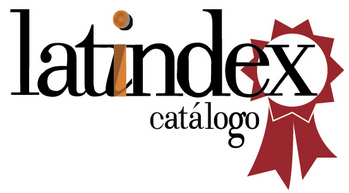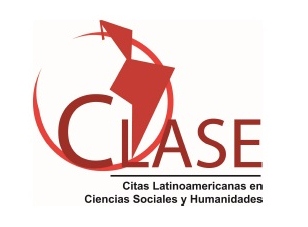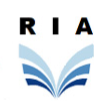Usos y abusos de la Metaargumentacion
Resumen
Recepción: 15 de octubre de 2015 Aceptación: 5 de enero de 2016 Los conceptos de metaargumento y metaargumentación van ganando presencia en la teoría de la argumentación. La tesis que quiero defender es que el examen del uso y de la historia de esos conceptos en la teoría de la argumentación y en las lógicas de la argumentación revisable permite diferenciar al menos tres acepciones muy distintas de metaargumento.Citas
BERMEJO-LUQUE, L. (2014): Falacias y argumentación. Madrid y México: Plaza y Valdés.
BLAIR, J. A. (2014). Review of “Meta-argumentation, An Approach to Logic and Argumentation Theory” by Maurice A. Finocchiaro. Informal Logic, 34(2), 219-239.
CAYROL, C. y M. C. Lagasquie-Schiex (2010). Coalitions of arguments; a tool for handling bipolar argumentation frameworks. International Journal of Intelligent Systems, 25(1), 83-109.
COHEN, D. (2001). Evaluating arguments and making meta-arguments”. Informal Logic, 21(2), 73-84.
COSTANTINI, S. (2002). “Meta-reasoning: A survey”. En A. C. Kakas y F. Sadri (eds.) Computational Logic: Logic Programming and Beyond – Essays in Honour of Robert A. Kowalski. Part II (pp. 253-288). Berlín y Heidelberg: Springer.
ESTEBAN, E. (2014, 16 de junio). Cien días de gracia. Europa Press. Recuperado de: http://www.europapress. es/otr-Press/firmas/estheresteban/noticia-mas-palabras-cien-dias-gracia-20140716120010.html
FINOCCHIARO, M. (1994). “The positive vs. the negative evaluation of arguments”. En R. H. Johnson y J. A. Blair (eds.) New Essays in lnformal Logic (pp. 21-35). Windsor, ON: Informal Logic.
FINOCCHIARO, M. (2005). Arguments about arguments; Systematic, Critical and Historical Essays in Logical Theory. Cambridge: Cambridge University Press.
FINOCCHIARO, M. (2007). Arguments, Meta-arguments, and Metadialogues: A Reconstruction of Krabbe, Govier, and Woods. Argumentation, 21, 253-268.
FINOCCHIARO, M. “Meta-argumentation: Prolegomena to a Dutch Project”. En F. H. van Eemeren y B. Garssen (eds.) Topical Themes in Argumentation Theory: Twenty Exploratory Studies (pp. 31-48). Dordrecht, Heidelberg, Londres y Nueva York: Springer.
FINOCCHIARO, M. (2013). Meta-argumentation. An Approach to Logic and Argumentation Theory. Londres: College Publications.
FREEMAN, J. B. (1991). Dialectics and the Macrostructure of Argument: a Theory of Structure. Berlín: Foris.
HITCHCOCK, D. (2007). “Informal logic and the concept of argument”. En D. Jacquette (ed.) Philosophy of Logic (pp. 101-130). Oxford: Basil Blackwell.
JOHNSON, R. H. (2000). Manifest Rationality: A Pragmatic Theory of Argument. Mahwah, NJ y Londres: Lawrence Erlbaum.
KRABBE, E.C.W. (1995). “Can we ever pin one down to a formal fallacy?”. En F.H. van Eemeren, R. Grootendorst, J. A. Blair, C. A. Willard y A. F. Snoeck Henkemans (eds.) Proceedings of the Third ISSA Conference on Argumentation, vol. 2 (pp. 333-344). Amsterdam: Sic Sat.
MARRAUD, H. (2007). La analogía como transferencia argumentativa.Theoria, 59, 167-188.
MARRAUD, H. (2010). Argumentos hipotéticos, razones y premisas. Tópicos, 39, 153-165.
ORDAZ, P. (2010, 29 de septiembre). La oposición frena a Hugo Chávez. El País. Recuperado de: http:// elpais.com/diario/2010/09/28/internacional/1285624801_850215.html
VREESWIJK, G.A.W. (1997). Abstract argumentation systems. Artificial Intelligence, 90, 225-279.
WALTON, D. N. y E. C. W. Krabbe (1995). Commitment in Dialogue: Basic Concepts of Interpersonal Reasoning. Albany, NY: State University of New York Press.
WELLMAN, C. (1971). Challenge and Response: Justification in Ethics. Carbondale, IL: Southern Illinois University Press.
WOODS, J. y Hudak (1989). By Parity of Reasoning. Informal Logic, 11(3), 125-139.
WOOLDRIDGE, M., P. McBurney, y S. Parsons (2005). “On the Meta-Logic of Arguments”. En Proceedings of the Fourth International Joint Conference on Autonomous Agents and Multi-Agent Systems (pp. 560-567). Utrecht.
Una vez que un texto es aceptado para su publicación en Quadripartita Ratio, sus autores deben firmar dos documentos de carácter legal: una Licencia de uso y una Declaración de autoría.
Con la Licencia de uso, los autores autorizan la publicación de su obra y la difusión de ésta (integración en bases de datos, difusión en nuestras redes sociales, reediciones posibles, etc.). No obstante, se autoriza la descarga, reproducción y distribución de todos nuestros contenidos publicados, siempre que no se modifique el contenido y se indique su origen (nombre de la revista, volumen, número, páginas y dirección electrónica del documento).
Con la Declaración de autoría, los autores manifiestan que la obra es de su autoría, original e inédita.









